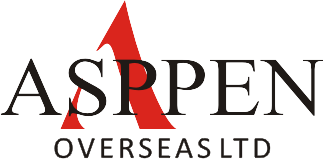Types of Work Visas in Canada
To live and work in Canada, most individuals require a work permit and employment visa. Canada offers two primary types of work permits: the open work permit and the employer-specific work permit.
- Open Work Permit: Issued in specific situations, this permit allows individuals to work for any employer in Canada and is not tied to a specific job.
- Employer-Specific Work Permit: This permit restricts individuals to work for one specific employer in a particular location.
Canada issues work permits to various categories of workers, including temporary workers, permanent workers, and business people. Eligibility requirements vary depending on the type of worker and the specific work permit needed. Some U.S. and Mexican citizens can obtain a Canadian work permit without a Labour Market Impact Assessment (LMIA), though they still need to obtain the work permit itself.
Requirements to Obtain a Canadian Work Visa
Most individuals will start with a temporary work permit. After one or more years, they may be eligible for a permanent work permit through the online Express Entry system. The three skilled worker immigration programs under the permanent work permit category include:
- Federal Skilled Worker Program
- Federal Skilled Trades Program
- Canadian Experience Class
The requirements for each program differ, but all Express Entry applications typically need the following initial documents:
- Passport or travel document
- Education credential assessment report
- Language test results
- Written job offer from a Canadian employer, if applicable
- Proof of work experience
- Provincial nomination (if available)
- Police certificate
- Proof of funds
If invited to apply, additional documents such as a proof of funds and birth certificate will be required.
Comprehensive Ranking System (CRS)
The Federal Skilled Worker Program uses a points-based system known as the Comprehensive Ranking System (CRS). Applicants receive points based on language skills in English or French, education, work experience, age, adaptability, and arranged employment. A minimum score of 67 out of 100 is required to qualify.
Biometrics for Canadian Work Permits
The IRCC currently has a temporary measure exempting applicants applying for a work permit from within Canada from providing biometrics. However, candidates outside of Canada must provide biometrics upon receiving a biometrics instruction letter. Instructions for providing biometrics can be found on the Government of Canada’s dedicated page.
Police Clearances for Canadian Work Permits
Visa officers may request police clearance certificates. Depending on the application location, this document may be part of the application checklist and must be provided initially. Work permit applicants may need to provide police clearance certificates from any country they have lived in for six months or more past the age of 18.
Medical Exam for Canadian Work Permit
A medical exam may be required based on the applicant’s intended length of stay, residence history, and occupation.
- Less than six months: Generally no medical exam required, with some exceptions for certain occupations.
- More than six months: Required if the applicant has lived or traveled to specific countries for six months or more or intends to work in occupations involving close contact with people.
Medical exams must be completed with a panel physician designated by IRCC. Applicants can choose to take an upfront medical exam before submitting their work permit application.
Photo Requirements for Canadian Work Permit
Applicants must provide a passport-sized photo meeting IRCC’s specifications.
Application Process for Employer-Specific Work Permit
- Applying for Labour Market Impact Assessment (LMIA): Employers must first obtain a positive LMIA.
- Obtaining a Temporary Job Offer: Employers send a copy of the positive LMIA and a detailed job offer letter to the candidate.
- Applying for a Work Permit: Candidates apply for a temporary work permit after receiving the job offer letter and positive LMIA.
- Obtaining a Work Permit: Eligible individuals receive a Canadian work permit. After working in Canada under a temporary work permit, they may become eligible for permanent residence based on job classification and language proficiency.

